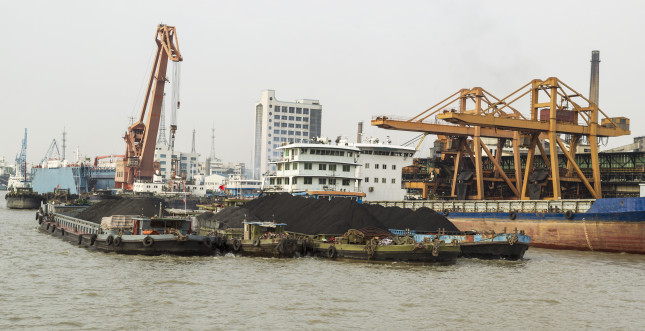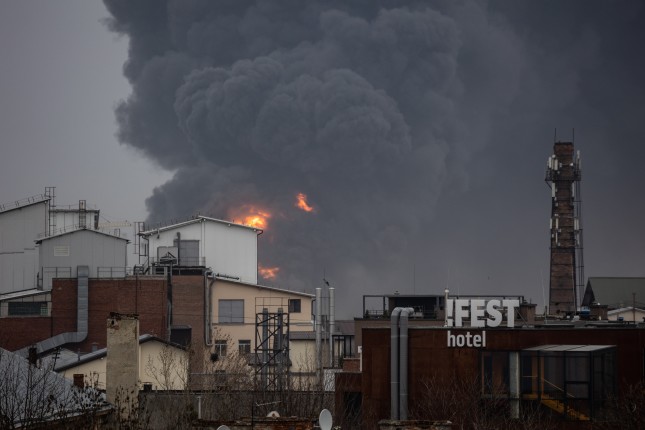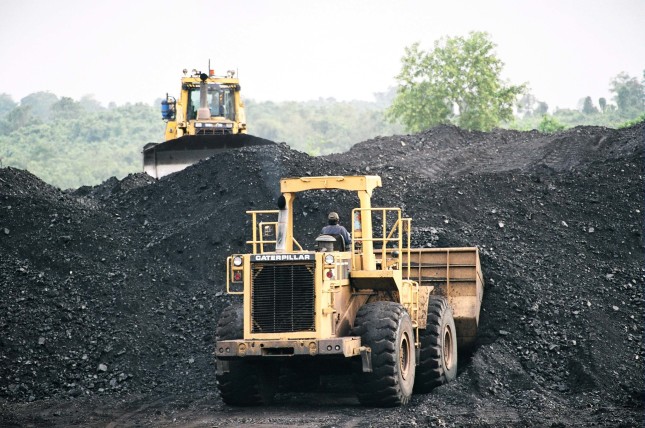-
Circumventing the Chokepoint: Can the US Produce More Rare Earths?
›
Nowhere is China’s critical mineral dominance greater than in rare earth supply chains. In 2022, the US government estimated that China controlled “nearly 60 percent of mined production, over 85 percent of processing capacity, and over 90 percent of permanent magnet production.”
-
Russia’s War in Ukraine: Green Policies in a New Energy Geopolitics
›
Russia’s brutal aggression has wreaked devastation in Ukraine for more than a year. It has also forced a fundamental rethink of geopolitics. Central to that new thinking is the role of energy security and how to manage the insecurities created by the lopsided dependencies exposed by the conflict.
-
Militaries, Metals, and Mining
›
In the early 1960s, Soviet fulfillment officers at the Berezniki and Zaporozh’ye ilmenite mines must have noticed an uptick in worldwide demand for titanium. Orders for titanium sponge were increasing around the globe, and the Soviet Union reacted by increasing production rapidly.
Yet some of these deliveries resulting from this boost in production were not reaching their intended customers. In fact, some of their customers didn’t even exist. Little did the Soviet producers know that it was actually the CIA on the receiving end of these shipments.
-
Conflict and Copper
›Guest Contributor // February 13, 2023 // By Morgan Bazilian, Aaron Malone & Eliseo Zeballos ZeballosGlobal demand for copper has climbed dramatically in recent years, a trend that is likely to continue apace. Peru is the world’s second largest producer of copper. Yet the clamor for copper is an opportunity that the nation is unable to seize upon at present. Peru is now undergoing severe political upheaval and protests that have brought new attention to the underlying risks in extractive industries and supply chains. Production cuts stemming from protests and blockades could amount to 3 percent of global copper output.
-
America Reenters Competition for Global Nuclear Energy Markets
›
During the 2010s, the United States was on the verge of permanently losing competitiveness in global nuclear energy markets. This weakness threatened American geopolitical goals, with Russia further extending its nuclear market dominance and China eyeing reactor exports across the Belt and Road.
-
Retiring Coal? The Prospects Are Brighter Than They Appear
›
As COP27 draws to a close, the conference is proving to be a disappointment for environmental advocates focused on eliminating the planet’s number one emitter: coal-fired power.
Yet only a year ago, at the UN climate talks in Glasgow, it felt different. At that time, one could be forgiven for getting excited about the prospects for phasing out coal fired power. Countries had committed to ending its use. Tantalizingly, coalitions of international partners and multilateral development institutions also introduced mechanisms that could help finance closures at scale.
Showing posts by Morgan Bazilian.









